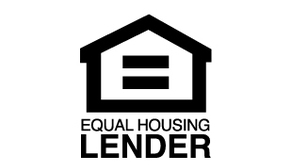It’s amazing how three little numbers—specifically, the three that make up your credit score—can have such an impact on your life. If your score is high then you are all set, but if it’s low, it may mean the difference between applying for and getting a home loan, being able to rent an apartment, or even to buy a car. So, if you envision buying your first home in the near future, you are going to have to raise your credit score so that lenders will be willing to take a risk on you.
Here some things you can do right now to improve your credit score:
Start with the Basics:
A. Get a Copy of Your Credit Report
You can get a credit report from each of the big three credit bureaus (Experian, Equifax, and TransUnion) by visiting their websites. You can get one free report every year that will provide you a list of all your accounts and your payment history. This is the data that is used to create your credit score. Read it carefully, looking for mistakes with late payments and amounts owed that can waylay your score. If you find any errors, contact the credit bureau immediately.
B. Know What Your Score Means
Fair Isaac Corp or FICO, produces the most commonly used credit scoring algorithm, with ranges from 300 to 850. Like tests you took in school, you want your score to be as high as possible. Generally, a score between 300 and 550 means you have bad credit, 551 to 689 means you have fair credit, 690 to 719 is good credit, 720 and up is excellent credit. According to Credit.com, the average FICO score is 692.
C. Pay Your Bills on Time
To improve your score, you not only have to pay your bills, you have to pay them on time. Your payment history constitutes the largest part of your credit score, so the more bills you pay on time, the higher your score. If you have a collection of overdue bills, pay off the ones most overdue first. It takes a track record of about six months of on-time bill paying to notice a bump in your credit score.
Make a Plan
A. Use Paper, Not Plastic
Consider paying for items in cash for a while to eliminate overspending, or use a debit card where the funds come directly from your checking account. If you still need to use your credit card, make sure to keep your balances low.
B. Avoid New Lines of Credit
Do not apply for any new credit in any form. It shows up on your credit report as an inquiry, and it appears that you are taking on more credit, which makes lenders wary. Consider asking for higher credit limits from your current lenders, rather than looking for new ones.
Additional Read: Top Creative Tips for Paying Closing Cost Credits
C. Use a Calendar
More specifically, use a calendar app on your phone to remind you to pay your bills every month. It’s one thing to forget once in a while, but regularly missing payment dates will make it almost impossible for you to get any kind of loan, whether it’s from a home mortgage lender or a car dealer.
The good news is that improving your credit score can be done. It requires some research, legwork, patience, and willpower, but, if you make a plan and stick to it, you can achieve your goal of buying your first home, renting an apartment, or purchasing a car. Don’t forget to keep checking your credit report and your score every few months to mark your progress. Things won’t turn around overnight, but, if you don’t get started, they never will.
View to know more about Credit Score.






